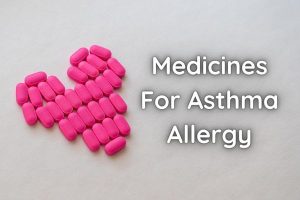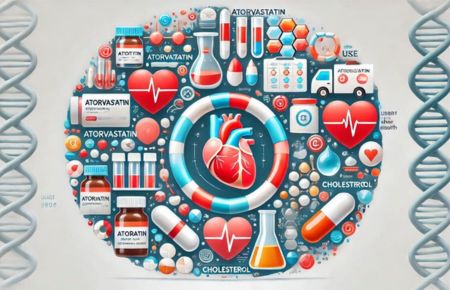
Asthma is a chronic condition that affects the lungs and airways, making it difficult to breathe. Allergies are a common trigger for asthma attacks, so it is important to have a treatment plan that includes medicines to control both conditions.
There are many different medicines available to treat asthma and allergies, and the best one for you will depend on your individual symptoms and triggers. Some common medicines used to treat asthma and allergies includes
Inhaled corticosteroids: These medicines help to reduce inflammation in the airways, making it easier to breathe.
Leukotriene modifiers: These medicines work by blocking leukotrienes, which are substances that can trigger asthma attacks.
Antihistamines: These medicines can help to relieve allergy symptoms such as sneezing, itching, and runny nose.
Decongestants: These medicines can help to reduce congestion and swelling in the airways.
Bronchodilators: These medicines work by relaxing the muscles around the airways, making it easier to breathe.
Are you interested to know more about medicines for asthma allergy, just click and find out.
Asthma Allergy Medications – a comprehensive list of medications used to treat asthma and allergies
There are a variety of medicines available to treat asthma and allergies. Some are designed to relieve symptoms, while others are intended to prevent or reduce the severity of an attack.
Here are five of the most common asthma and allergy medications:
Antihistamines: This class of medication is typically used to relieve the symptoms of hay fever, hives, and other allergic reactions. Antihistamines can be taken orally, nasally, or topically.
Corticosteroids: These drugs are used to reduce inflammation and are often prescribed for people with severe asthma. Corticosteroids can be taken orally, inhaled, or injected.
Beta-2 agonists: These drugs are used to relieve the symptoms of asthma by relaxing the muscles around the airways. Beta-2 agonists can be taken orally, inhaled, or injected.
Leukotriene modifiers: These drugs are used to prevent or reduce the severity of asthma attacks by blocking the action of leukotrienes, which are substances that can cause inflammation. Leukotriene modifiers can be taken orally or inhaled.
Immunotherapy: This treatment involves the administration of allergy shots, which can help to reduce the severity of allergic reactions.
The Different Types of Asthma Allergy Medications – a breakdown of the various types of medications available, including their pros and cons
There are a variety of asthma and allergy medications available on the market today. Each type of medication has its own set of pros and cons.
Here is a breakdown of the different types of medications.
Antihistamines: Antihistamines are the most commonly used type of asthma and allergy medication. They work by blocking histamine, a substance that is released during an allergic reaction.
Antihistamines are available in both oral and nasal spray forms. Some common side effects of antihistamines include drowsiness, dry mouth, and dizziness.
Decongestants: Decongestants are another common type of asthma and allergy medication. They work by reducing swelling and inflammation in the airways.
Decongestants are available in both oral and nasal spray forms. Some common side effects of decongestants include dry mouth, jitteriness, and insomnia.
Corticosteroids: Corticosteroids are a type of medication that is used for more severe asthma and allergy symptoms. They work by reducing inflammation in the airways. Corticosteroids are available in both oral and inhaled forms. Some common side effects of corticosteroids include weight gain, mood swings, and osteoporosis.
Bronchodilators: Bronchodilators are a type of medication that is used for more severe asthma symptoms. They work by relaxing the muscles around the airways. Bronchodilators are available in both oral and inhaled forms. Some common side effects of bronchodilators include heart palpitations, jitteriness, and tremor.
Immunotherapy: Immunotherapy is a type of medication that is used for more severe asthma and allergy symptoms. It works by changing the way the body reacts to allergens. Immunotherapy is available in both injectable and sublingual forms. Some common side effects of immunotherapy include fever, joint pain, and itching.
How Asthma Allergy Medications Work – an explanation of how these medications work to control asthma and allergies
There are five main types of medications used to control asthma and allergies: AntihistaminesAntihistamines work by blocking histamine, a chemical that is released by the body in response to an allergen. This action helps to relieve the symptoms of hay fever, such as sneezing, itching, and watery eyes.
DecongestantsDecongestants work by shrinking the blood vessels in the nose, which reduces congestion and makes it easier to breathe.
CorticosteroidsCorticosteroids work by reducing inflammation in the airways, which makes it easier to breathe.
BronchodilatorsBronchodilators work by relaxing the muscles around the airways, which makes it easier to breathe.
ImmunotherapyImmunotherapy works by desensitizing the body to the allergens that trigger asthma and allergy symptoms. This is done through a series of shots or by taking oral medications.
The Pros and Cons of Asthma Allergy Medications – a detailed look at the Pros and Cons of using these medications
There are a variety of asthma and allergy medications available on the market today. But which one is right for you?
It depends on a number of factors, including the severity of your symptoms, your overall health, and your personal preferences. Here is a detailed look at the pros and cons of five popular asthma and allergy medications:
Antihistamines
Antihistamines are the most common type of allergy medication.
They work by blocking the action of histamine, a substance that is released during an allergic reaction.
Pros: Antihistamines are generally very effective at relieving allergy symptoms.
They are available in both over-the-counter and prescription forms.
Cons: Antihistamines can cause drowsiness, dry mouth, and other side effects. If you are driving or operating machinery, it can impair your ability to do so safely.
Decongestants
Decongestants are another common type of allergy medication. They work by shrinking swollen blood vessels in the nose, which reduces congestion.
Pros: Decongestants are usually very effective at relieving nasal congestion. They are available in both over-the-counter and prescription forms.
Cons: Decongestants can cause side effects such as dry mouth, jitteriness, and trouble sleeping. If you have high blood pressure, you should avoid decongestants. Nasal SpraysNasal sprays are a popular type of allergy medication. They work by delivering a dose of medication directly to the nasal passages, where it can be quickly absorbed.
Pros: Nasal sprays are generally very effective at relieving allergy symptoms. They are easy to use and available in both over-the-counter and prescription forms.
Cons: Nasal sprays can cause side effects such as burning, stinging, and dryness. If you use them too often, they can actually make your symptoms worse.
Corticosteroids
Corticosteroids are a type of medication that is used to treat a variety of conditions, including allergies. They work by reducing inflammation.
Pros: Corticosteroids are generally very effective at relieving allergy symptoms. They are available in both over-the-counter and prescription forms.
Cons: Corticosteroids can have a variety of side effects, including weight gain, mood swings, and trouble sleeping. If you use them for a long time, they can also weaken your bones.
Immunotherapy
Immunotherapy is a type of treatment that is used to desensitize someone to a particular allergen. It is usually given in the form of shots, but it can also be given as a pill or liquid.
Pros: Immunotherapy is generally very effective at treating allergies. It can be used to treat a wide variety of allergies.
Cons: Immunotherapy can cause side effects such as swelling, redness, and itching at the injection site. It can also cause flu-like symptoms.
The Best Asthma Allergy Medications – a list of the most effective medications for treating asthma and allergies
There are a variety of asthma and allergy medications available to treat symptoms and prevent attacks. Some medications are available over the counter, while others require a prescription.
The best asthma and allergy medications work by reducing inflammation in the airways and lungs. This can help to relieve symptoms and prevent attacks. There are a number of different medications that can be used to treat asthma and allergies.
Some of the most effective medications include: SteroidsSteroids are a type of anti-inflammatory medication. They can be taken orally, by inhalation, or in the form of injections.
Steroids are typically used to treat severe asthma attacks.
Beta-agonists: Beta-agonists are a type of bronchodilator. They work by relaxing the muscles around the airways, making it easier to breathe. Beta-agonists are typically used to treat mild to moderate asthma attacks.
Antihistamines: Antihistamines are a type of medication that can be used to treat allergies. They work by blocking the action of histamine, a substance that is released during an allergic reaction. Antihistamines can be taken orally or in the form of nasal sprays.
Leukotriene inhibitors: Leukotriene inhibitors are a type of medication that can be used to treat asthma and allergies. They work by blocking the action of leukotrienes, substances that are involved in the inflammation process. Leukotriene inhibitors are typically taken orally.
Immunotherapy: Immunotherapy is a type of treatment that can be used to treat allergies. It involves exposing the body to small amounts of the allergen in order to build up immunity. Immunotherapy can be administered in the form of shots or pills. These are just a few of the many medications that are available to treat asthma and allergies.
Talk to your doctor about which medication is right for you.
Conclusion
There are many different medicines available to treat asthma and allergies. Some of the most common include:
Antihistamines, Corticosteroids, Bronchodilators, Immunotherapy, LEukotriene inhibitors
Thank You for Visiting our website mhnrc.org. If you liked the article, then share it with others.
Follow us on Facebook


